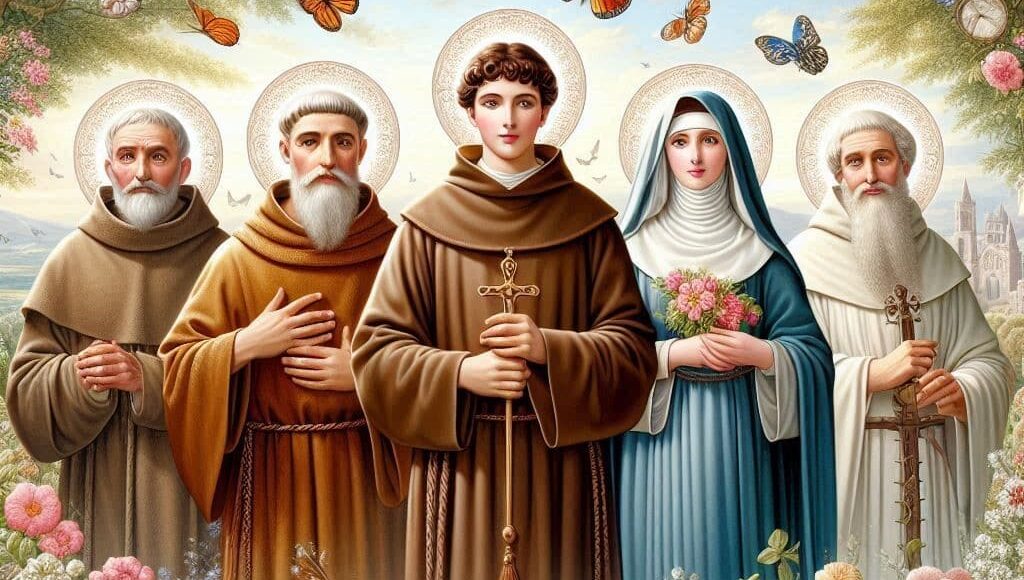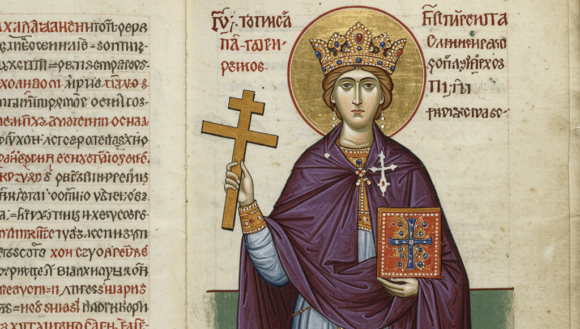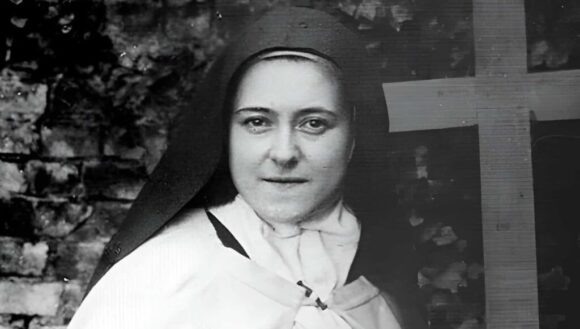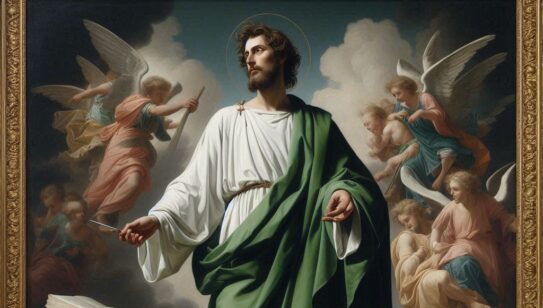A saint is a figure venerated in various religious traditions, especially in Christianity, where saints are regarded as people who have lived a life of exceptional virtue and who, after their death, are recognized for their closeness to the divine. Saints are acclaimed not only for their actions in life, but also for the miracles attributed to their intercession. Canonization, a formal process carried out by the church, is the means through which a person is recognized as a saint, and this act highlights their role as a role model and spiritual protector for the faithful.
Devotion to saints varies according to culture and religion, and in many communities, these figures are the subject of celebrations, rituals and festivities. Saints may be patrons of certain groups, professions or causes, and their figure is commonly associated with hope, healing and moral guidance. Thus, veneration of saints reflects a deep connection between humans and the divine, offering comfort and spiritual support to those who believe in their intercession.
What is a saint according to the Bible?
According to the Bible, a saint is a person who has been set apart and consecrated to serve God. In the biblical context, holiness refers to moral and spiritual purity, as well as dedication to divine things. The word “saint” comes from the Hebrew “kadosh” and the Greek “hagios,” which imply the idea of being set apart from the common and dedicated to the sacred.
In the New Testament, all believers are called saints, indicating that holiness is not exclusive to a few, but is a characteristic of the Christian community as a whole. This is reflected in passages such as Romans 1:7, where Paul addresses “all who are in Rome, beloved of God, called to be saints.” This inclusion emphasizes that holiness is a calling for all who follow Christ.
Some of the attributes of a saint, according to the Bible, include Faith in God and Jesus Christ, Obedience to divine commandments, Love for others, reflecting the love of God, and Consecration to the spiritual life and to the community of believers.
Who are the Catholic saints?
Saints are people who have led a life of exceptional virtue and have been recognized by the Church as models of faith and morality. These individuals are canonized, a process that involves a thorough investigation of their lives, miracles, and their impact on the community. By being declared saints, they are granted a special place in the liturgy and popular devotion, becoming intercessors before God for believers.
In the Catholic tradition, saints can be classified into different categories according to their life and legacy:
- Martyrs: Those who have given their lives for their faith.
- Confessors: Saints who have lived a life of virtue, but have not been martyred.
- Virgin or virgins: Saints who have taken a vow of chastity and lived in purity.
- Founders: Those who have established religious orders or communities of faith.
Devotion to saints is an integral part of Catholic practice. The faithful often pray to saints, asking them to intercede for them before God. This is due to the belief in the communion of saints, which holds that all members of the Church, both living and dead, are united in Christ. Saints are therefore seen as spiritual guides who can help believers on their path to holiness.
It is important to mention that veneration of saints does not involve worshipping them, as worship is reserved solely for God. Instead, saints are honored and remembered for their examples of faith, and their lives can serve as inspiration for those seeking to deepen their relationship with the divine.
What it means to be holy according to the Bible?
Being holy according to the Bible involves being set apart and consecrated for the service of God. Holiness is an essential attribute of God, and throughout Scripture, we are called to imitate this divine characteristic. In the Old Testament, the people of Israel were chosen to be a holy people, meaning that they were to live according to God’s instructions and commandments, reflecting his character in the world.
In the New Testament, the concept of holiness is expanded with the arrival of Jesus Christ, who invites us to be part of his body, the Church. Holiness refers not only to the absence of sin, but also to an active life of service and love toward others, following the example of Christ. Through the Holy Spirit, believers are empowered to live in a holy way.
Being holy is being in a right relationship with God, living according to biblical principles, being an example to others in the faith, reflecting God’s love and justice in our actions.
Furthermore, holiness is an ongoing process. Christians are called to grow in their faith and to be transformed into the image of Christ. This involves a daily commitment to prayer, study of the word, and practice of community. Holiness is, therefore, both a state of being and a journey of spiritual growth.
Saint etymological meaning
The term “saint” comes from the Latin “sanctus,” meaning “sacred” or “consecrated.” This etymological root reflects the essence of the concept, which is linked to the idea of something that has been set apart for the divine. In many religious traditions, a saint is a person who has led an exemplary and virtuous life, standing out for their devotion to God and their service to the community.
In the context of Christianity, saints are considered intercessors before God and are given veneration. The etymology of the term highlights their “sacred” character, implying that these figures are seen as role models and a source of inspiration for believers. Their lives and teachings are often studied and celebrated in religious festivals.
In addition, the cult of saints has deep cultural and social roots. Miracles are often attributed to them and they are asked for help in times of need. This has led to the creation of a rich tradition of stories and legends surrounding their lives, including:
- Miracles attributed to their intercession.
- Feast days and celebrations in their honor.
- Stories about their life and martyrdom.
How to Explain What a Saint Is for Kids?
A saint is a person who has lived a special life and done good things in his or her life. Many times, these people are recognized for their love, kindness, and dedication to helping others. In the context of religion, a saint is someone who has been officially declared by the church as a person very close to God, and who can be an example for all of us to follow.
Saints are often remembered for their stories and teachings. For example, some saints did miracles, which are amazing things that seem impossible. These acts help people believe in God and have hope. Here are some characteristics that saints often have:
- They are very kind and generous people.
- They help those in need and care for others.
- They live simply and humbly.
- They inspire others to be better.
In many cultures, special days are celebrated to honor saints. These celebrations can include festivals, masses, and activities where people gather to remember their lives and teachings. By learning about saints, children can discover how to be better friends, brothers, and citizens.
List of notable saints in history
The history of humanity is marked by the lives of numerous saints who have left an indelible mark on the culture and spirituality of different communities. These individuals, often recognized for their dedication to God and their example of virtues, have been canonized by the Church and are venerated in different religious traditions. Below is a list of some of the most notable saints who have influenced history.
- Saint Peter: Considered the first pope, he was one of the closest apostles to Jesus and is known as the “founder” of the Catholic Church.
- Saint Francis of Assisi: Founder of the Franciscan order, he is known for his love of nature and his dedication to poverty.
- St. Teresa of Jesus: A mystic and Carmelite reformer, she is recognized for her deep spirituality and her influence on female religious life.
- St. John Paul II: One of the most influential popes of the 20th century, his legacy includes the promotion of peace and interfaith dialogue.
In addition to their role as religious figures, these saints have been a source of inspiration for millions of people throughout the centuries. Their lives and teachings continue to be studied and celebrated, reflecting universal values such as love, compassion, and justice. Veneration of these saints not only strengthens the faith of believers, but also promotes ethical principles that can be applied in everyday life.
Conclusion
In conclusion, the lives and legacies of Catholic saints are powerful examples of the call to holiness that all Christians are invited to embrace. Their dedication, faith, and altruism highlight the unlimited potential for spiritual growth and transformation. By exploring their stories and learning from their virtues, we can find inspiration and guidance on our own journeys toward holiness. May the lives of these extraordinary people continue to inspire and awaken our own desire for holiness, as we strive to live our faith with passion and purpose.







